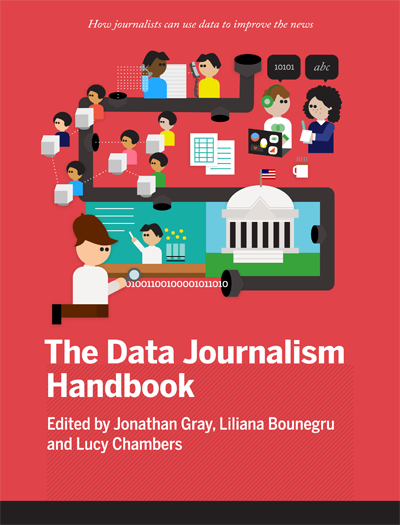Librarians as Data Scientists: Data Science for All
"The ability to take data - to be able to understand it, to process it, to extract value from it, to visualize it, to communicate it - that's going to be a hugely important skill in the next decades. " - Hal Varian, McKinsey Quarterly
I came across the above quote from the Data Scientist Training for Librarians website. It provides the motivation for librarians - and others- to consider learning more about data science - a field that applies to just about every field of study in some way, as well as most professions.
 |
| Credit: Dirk Tiede/DST4L |
Librarians are in a good position to become early embracers of data science, as they are interested in information, understand a wide range of scholarly (and not-so scholarly) topics, and serve as the human interface bridging people and ideas. Wearing many hats, they provide resources for people from all walks of life, in community libraries, schools, universities, government, industry, and research centers. With the power of today's computers and software tools, they have the potential to play an important role in the way we discover, curate, understand, and communicate knowledge.
Chris Erdmann, the head librarian of the John G. Wolbach Library at the Harvard-Smithsonian Center for Astrophysics, in collaboration with like-minded others, organized the first Data Scientist Training for Librarians (DST4L) course. The first round of the course included a number of noted speakers from a variety of disciplines, and covered a number of topics, as summarized by Jennifer Prentice (Simmons Graduate School of Library and Information Science Tech Lab) on the course website.
The second DST4L course was opened to all librarians, with a solid list of topics outlined on the syllabus. The course started with a 2-hour introduction to the course last July, captured in the video below:
I'd like to share that Chris Erdmann is a member of the Seamless Astronomy Group, a multi-disciplinary collaboration of astronomers, computer scientists, librarians, visualization specialists, and information scientists. The aim of this group is to research and develop systems that "seamlessly integrate scientific data and literature, the semantic interlinking and annotation of scientific resources, the study of the impact of social media and networking sites on scientific dissemination, and the analysis and visualization of astronomical data and research communities".
As I looked at the info-graphic posted on the Seamless Astronomy website (below), it occurred to me that this conceptualization could apply to a number of disciplines. I look forward to learning more about the tools, methods, and processes that this group generates!
 |
| Credit: Seamless Astronomy Group |
One of the projects that interests me is the WorldWide Telescope, a collaboration between Microsoft Research and the Seamless Astronomy group. The WorldWide Telescope is a visualization software that enables people to explore data and high resolution images stored in the "cloud" through a web browser or computer application. According to Chris Endermann, a student project exploring the use of the new Oculus Rift virtual reality headset with the WorldWide Telescope is in the works.
RELATED AND SOMEWHAT RELATED
Data Scientist Training for LibrariansData Scientist Training For Librarians Course Details
Data Science: What's in it for the New Librarian?
jmstanto, Information Space, 7/16/12
Cracking the Code: Librarians Acquiring Essential Coding Skills Matt Enis, The Digital Shift, 3/6/13 (Links to tutorials)
OpenRefine: Data Scientist Trainings for Librarians Presentation (SlideShare)
Tom Morris, 3/28/13
Librarians Are Becoming Big Data Experts
John Edwards, BigData Republic, 8/9/13
Code {4}lib Issue 21
Prototyping as a Process for Improved User Experience with Library and Archives Websites
Shaun Ellis, Maureen Callahan, code{4}lib Journal, Issue 18, 10/3/12
Crafting Linked Open Data for Cultural Heritage: Mapping and Curating Tools for the Linked Jazz Project M. Cristina Pattuelli, Matt Miller, Leanora Lange, Sean Fitzell, Carolyn Li-Madeo, code{4}lib Journal, 7/15/13
Collaborative Librarianship News
Confederation of Open Access Repositories
Public Libraries Add Multimedia Learning to Digital Mission
Nora Fleming, Education Week, 9/15/13
Life of an emerging technologies librarian in the health sciences (must-read)
Patricia F. Anderson, UMSI Monthly, 1/2013
Data and Coding for Journalists
Although journalists aren't librarians, the profession has expanded to include data journalism, a growing field fueled by the visual nature of the web and the increase in popularity of mobile devices in the form of smart phones and tablets. Books and newspapers are still with us, but technology has changed the way journalists do their jobs
I'm not sure if the journalists and librarians are collaborating with each other as they venture into coding and data analysis. If not, they should! The links below would be of interest to librarians, journalists, and other knowledge junkies.
Video: Journalism in the Age of Data
Journalism in the Age of Data from Geoff McGhee on Vimeo.
Coding for the Future: The Rise of Hacker Journalism
Maryanne Reed, Media Shift, 5/2/13
The above post includes a number of video and audio clips on the topic, plus a number of links, such as the following:
- The Census Bureau
- Centers for Medicare & Medicaid Services
- Sunlight Foundation
- National Institute on Money in State Politics
Sarah Marshall, Journalism.Co.Uk, 9/9/13
Data Journalism Handbook: A Five Minute Field Guide
Data Journalism Handbook Chapter: Getting Data
ODDS AND ENDS
A little history about the idea of seamlessness in computing:
The Computer for the 21st Century
Mark Weiser, Scientific American, September 1991 (online draft)
My thoughts on the need for data/information visualization not long after the world-wide financial crisis:
Reflections: Need for Interactive Infoviz for the Financial Biz, Business Leaders, Government Officials, Educators and the Rest of US...
Lynn Marentette, Interactive Multimedia Technology, 2/1/09
Since I'm a school psychologist (in my day job), I thought I'd slip this in:
Why every (psychology) student should learn to code
Matt Wall, Computing for Psychologists, 1/13/13
Many of Matt Wall's links would be of interest to anyone thinking about learning more about technology, data analysis, and related coding.

No comments:
Post a Comment